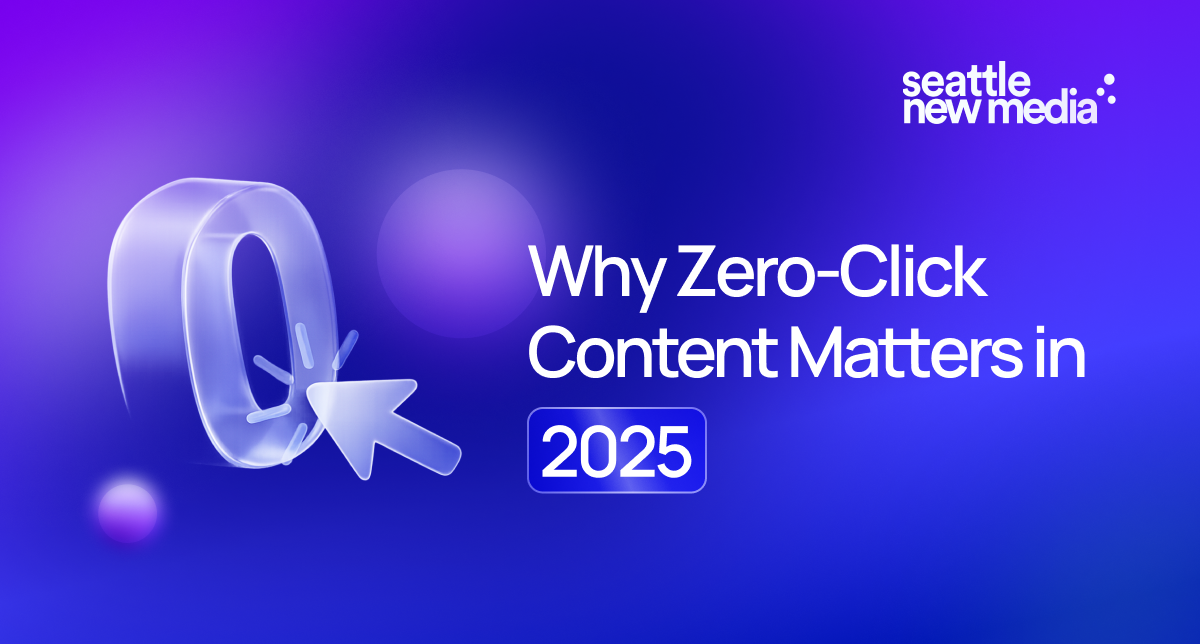-p-2000.png)


Custom Website Design vs Template: Pros, Cons & Comparison

Are you planning on designing a new website for your organization?
Unsure of your choices to design your website: custom website design or template?
In the long run, your choices would play a great role in enhancing your business’s digital marketing strategy. So, you need to be mindful of your futuristic requirements as well, regardless of whether you choose a custom website design or a template.
This article will provide an overview of both custom website designs and templates, including the pros and cons of each approach. By the end, you will better understand which option best suits your needs.
What is a Custom Website Design?
A website that is designed from the scratch, without including a template, is referred to as a custom website design. A custom website design is unique and offers flexibility and software integration.
A custom website design cannot be built on platforms, such as Joomla or WordPress. Many organizations, including large-sized businesses, prefer custom sites as these are found to be more effective in driving sales and promoting business growth in comparison to the templates.
Your custom website design is unique to your business’s website. Unlike templates, you don’t have to worry about spending money on features or functionalities that are not useful.
When it comes to a custom website design, you have nothing ready. You must start from the bottom up, building each functionality that your business demands. This process imight be time-consuming and expensive in comparison to using a template.
You will need to hire web design professionals to design if you have limited or no knowledge related to website design and development. However, in the future, you will be able to incorporate any new changes or update your website, if needed. Now, let's look at the pros of building a custom website.
Pros of Custom Web Design
- You can build the site from scratch, based on your business needs and requirements.
- It gives your website a unique look and feel, making it easier to stand out from the crowd.
- Provides better SEO potential, as the website can be designed and developed with SEO best practices in mind.
- Enhanced brand identity, as you can design the website to align with your brand's visual style and messaging.
- It provides more flexibility and scalability, allowing the website to grow as your business grows.
- It is more secure than off-the-shelf web designs as it can be tailored to provide specific security features.
- Support is always available.
Cons of Custom Web Design
- It can be a bit time-consuming and expensive.
- Includes the collective effort of designers, developers, QAs, and digital marketing professionals.
What is a Website Template?
A template is a pre-designed layout or framework that can be used to create a website. A website that is designed and developed using an existing platform, offering ready-to-use design and functionalities. These websites are designed from templates.
While a template offers you a lot of built-in options, there are no such options when you choose to go with a custom website.
Most templates have all functionalities and features ready; all you must do is set up and you’re ready to go live. Regardless of whether you are good at coding or not, you can get your website up and running.
Using a template, you’d have only limited options to update your design in the future, if needed.
There are several platforms and website providers that offer themes and templates to help businesses design websites.
- Wordpress
- Wix
- Webflow
- GoDaddy
- Squarespace
WordPress and Webflow offers several themes (including paid and free themes). Most website development agencies can help you design a theme based website. However, based on the business’s requirements, the kind of site that is required differs.
Some websites might be needed to serve simple purposes. A themed approach works the best for such sites with little or no custom requirements. You can save a lot of money and time on the design and development requirements, which you can invest into building an excellent digital marketing strategy for the site, which will attract, engage, and convert your potential prospects into loyal customers.
However, in the course of time, your site might be faced with issues, such as increased loading time or others.
Some web design companies don’t include ongoing help (maintenance and support services) when they use a template to design a website as they might be unfamiliar or have no knowledge concerning the underlying code. With that being said, let's look at the pros and cons of using website templates.
Pros of Website Templates
- It helps you set up and launch your website easily.
- More cost-effective than a custom website.
- It can be integrated with third-party apps.
- Offers various industry-specific themes, which you can choose depending on the nature of your business.
Cons of Website Templates
- You’re left with a site that uses a boxy theme (built-in design doesn’t leave you with many options to customize the design as you desire).
- Some templates might not be mobile-responsive.
- It may not look as unique or professional as a custom-designed website.
- Finding support is challenging. Ongoing maintenance and updates may be more difficult or time-consuming than a custom designed website.
- Add-ons and third-parties integration might slow down the site.
- If not properly maintained and updated, it can be prone to security vulnerabilities.
Custom Website vs Template: Which One to Choose?
Custom Website
If you don't have any budget or time limits, then building a custom website is hands down the best option. A custom website might cost more upfront, but it can offer more customization, better SEO potential, scalability, security, brand identity, and a better user experience, which can, in turn, help you save money in the long run.
Website Template
If you're short on time and budget and don't have any specific design requirements in mind, then using a website template might be the best choice. Templates are also a good option for those who don't know coding and just need a basic website to showcase their business.
But keep in mind that though template websites may be more affordable and easier to set up, they may not provide the same level of customization as a custom website and may require more maintenance and third-party plugins to function properly. Additionally, website templates often limit how you can express your brand, what features you can use, and how much you can grow. So while they may save you money at first, they can end up costing you more in the long run.

Let's talk
Contact UsFAQ
Editorial Team
Publisher
Are you planning on designing a new website for your organization?
Unsure of your choices to design your website: custom website design or template?
In the long run, your choices would play a great role in enhancing your business’s digital marketing strategy. So, you need to be mindful of your futuristic requirements as well, regardless of whether you choose a custom website design or a template.
This article will provide an overview of both custom website designs and templates, including the pros and cons of each approach. By the end, you will better understand which option best suits your needs.
What is a Custom Website Design?
A website that is designed from the scratch, without including a template, is referred to as a custom website design. A custom website design is unique and offers flexibility and software integration.
A custom website design cannot be built on platforms, such as Joomla or WordPress. Many organizations, including large-sized businesses, prefer custom sites as these are found to be more effective in driving sales and promoting business growth in comparison to the templates.
Your custom website design is unique to your business’s website. Unlike templates, you don’t have to worry about spending money on features or functionalities that are not useful.
When it comes to a custom website design, you have nothing ready. You must start from the bottom up, building each functionality that your business demands. This process imight be time-consuming and expensive in comparison to using a template.
You will need to hire web design professionals to design if you have limited or no knowledge related to website design and development. However, in the future, you will be able to incorporate any new changes or update your website, if needed. Now, let's look at the pros of building a custom website.
Pros of Custom Web Design
- You can build the site from scratch, based on your business needs and requirements.
- It gives your website a unique look and feel, making it easier to stand out from the crowd.
- Provides better SEO potential, as the website can be designed and developed with SEO best practices in mind.
- Enhanced brand identity, as you can design the website to align with your brand's visual style and messaging.
- It provides more flexibility and scalability, allowing the website to grow as your business grows.
- It is more secure than off-the-shelf web designs as it can be tailored to provide specific security features.
- Support is always available.
Cons of Custom Web Design
- It can be a bit time-consuming and expensive.
- Includes the collective effort of designers, developers, QAs, and digital marketing professionals.
What is a Website Template?
A template is a pre-designed layout or framework that can be used to create a website. A website that is designed and developed using an existing platform, offering ready-to-use design and functionalities. These websites are designed from templates.
While a template offers you a lot of built-in options, there are no such options when you choose to go with a custom website.
Most templates have all functionalities and features ready; all you must do is set up and you’re ready to go live. Regardless of whether you are good at coding or not, you can get your website up and running.
Using a template, you’d have only limited options to update your design in the future, if needed.
There are several platforms and website providers that offer themes and templates to help businesses design websites.
- Wordpress
- Wix
- Webflow
- GoDaddy
- Squarespace
WordPress and Webflow offers several themes (including paid and free themes). Most website development agencies can help you design a theme based website. However, based on the business’s requirements, the kind of site that is required differs.
Some websites might be needed to serve simple purposes. A themed approach works the best for such sites with little or no custom requirements. You can save a lot of money and time on the design and development requirements, which you can invest into building an excellent digital marketing strategy for the site, which will attract, engage, and convert your potential prospects into loyal customers.
However, in the course of time, your site might be faced with issues, such as increased loading time or others.
Some web design companies don’t include ongoing help (maintenance and support services) when they use a template to design a website as they might be unfamiliar or have no knowledge concerning the underlying code. With that being said, let's look at the pros and cons of using website templates.
Pros of Website Templates
- It helps you set up and launch your website easily.
- More cost-effective than a custom website.
- It can be integrated with third-party apps.
- Offers various industry-specific themes, which you can choose depending on the nature of your business.
Cons of Website Templates
- You’re left with a site that uses a boxy theme (built-in design doesn’t leave you with many options to customize the design as you desire).
- Some templates might not be mobile-responsive.
- It may not look as unique or professional as a custom-designed website.
- Finding support is challenging. Ongoing maintenance and updates may be more difficult or time-consuming than a custom designed website.
- Add-ons and third-parties integration might slow down the site.
- If not properly maintained and updated, it can be prone to security vulnerabilities.
Custom Website vs Template: Which One to Choose?
Custom Website
If you don't have any budget or time limits, then building a custom website is hands down the best option. A custom website might cost more upfront, but it can offer more customization, better SEO potential, scalability, security, brand identity, and a better user experience, which can, in turn, help you save money in the long run.
Website Template
If you're short on time and budget and don't have any specific design requirements in mind, then using a website template might be the best choice. Templates are also a good option for those who don't know coding and just need a basic website to showcase their business.
But keep in mind that though template websites may be more affordable and easier to set up, they may not provide the same level of customization as a custom website and may require more maintenance and third-party plugins to function properly. Additionally, website templates often limit how you can express your brand, what features you can use, and how much you can grow. So while they may save you money at first, they can end up costing you more in the long run.
FAQ
Editorial Team
Publisher




Hi, I'm Mike!
If you are enjoying the article, feel free to subscribe to our monthly newsletter.
If you have any project requirements, please contact us.














